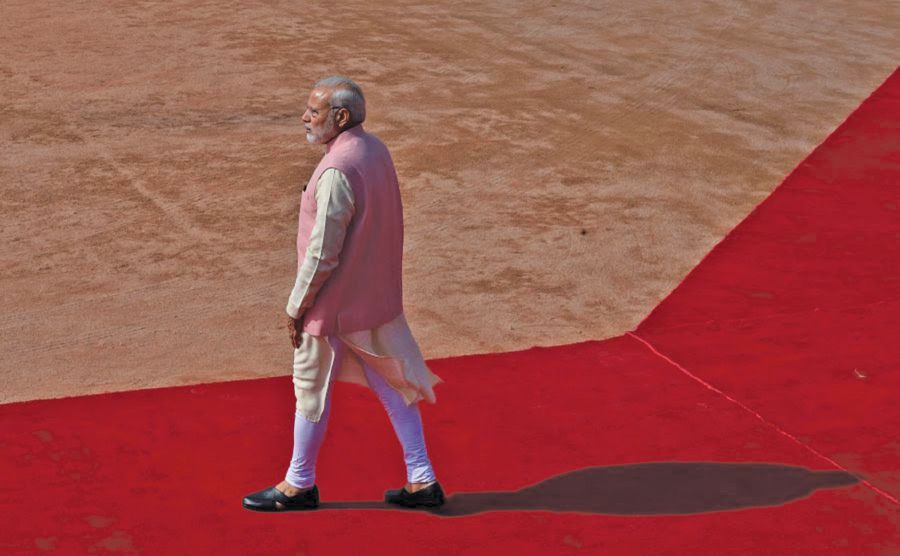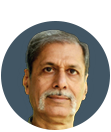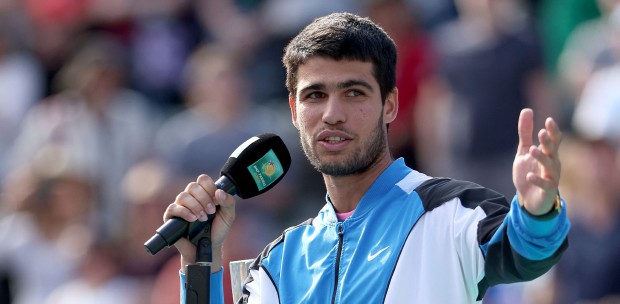
THESE are turbulent times as India enters its election year with an executive intolerant of dissent, an under-performing parliament and some opposition parties unsuccessfully seeking, for the first time-ever, removal of Chief Justice of India (CJI), Justice Dipak Misra.
The attempt at seeking his impeachment was ill-conceived. As The Indian Express newspaper said: “Misra has questions to answer,crosses to bear. But the notice to impeach him is misguided and ill thought through.”
Venkiah Naidu, Vice President and Chairman of Rajya Sabha,parliament’s upper house, last Monday rejected a notice given by 67 lawmakers from seven opposition parties, who accused Misra of ‘misbehaviour’ on five counts. Naidu held that this lacked “substantial merit.”
Although Congress that spearheaded the move has questioned Naidu’s powers to reject a notice at the admission stage, for all practical purposes, the issue stands foreclosed.The opposition could appeal before the Supreme Court. But that is likely to be rejected.
Seeking CJI Misra’s impeachment, meant to embarrass the government, is the outcome of a break-down of trust among institutions or rather, the individuals who currently man them.
But nobody has the stomach for this clash. Retired chief justices,constitutional experts and most media editorials reacted with alarm and disapproval. Eminent jurist Fali S. Nariman called it “a horribly black day in the history of the Supreme Court.”
Critics have accused the government of influencing judiciary even as it delays clearing of appointments of judges recommended by the Collegium that CJI Misra currently heads. The impeachment issue, however, brought the two on the same page.
The opposition lacked solid ground to nail CJI Misra. Had Naidu admitted the notice leading to a debate, much dirty linen would have been washed. But the ruling alliance, having the numbers in both Houses, would have defeated it.
The opposition was divided. Even within the Congress, former Prime Minister Manmohan Singh and many ministers in his erstwhile government, including Palanivel Chidambaram, had disapproved. Now the party has the egg on its face.
Prime Minister Narendra Modi hailed it as “victory of democracy,” but acrimony, distrust and inherent dangers to the Indian polity persist.
Simmering dissatisfaction at the way the CJI allots cases came to the fore in January when four senior-most judges after him went public in January in an unprecedented event. They objected to his assigning crucial cases (those with political overtones) to junior judges by-passing the seniors. With CJI Misra unrelenting, the issue has festered.
Significantly, the impeachment move came a day after a bench of the apex court that Misra headed foreclosed all options to press for an inquiry into the mysterious death of Justice B M Loya, a junior judge dealing with a murder case in which Amit Shah, Modi’s top aide and chief of the ruling Bharatiya Janata Party (BJP) was an accused.
Political dimensions of this case are not lost on anyone. The case pertains to ‘encounters’ that Shah allegedly ordered a decade back. The Supreme Court had then externed Shah from Gujarat where he was Home Minister under Modi. Scales have tilted after Modi took power at the federal level. Most witnesses in that case, after having deposed one way, have now turned ‘hostile’.
In most democracies, impeachment is a legislative-constitutional procedure to remove an official appointed under the Constitution.In the late 18 th century, Warren Hastings was impeached by the British Parliament for misusing power and graft as India’s Governor General. This was independent India’s sixth. But after
acrimonious proceedings, none has concluded and no judge has been impeached.
Naidu’s order is bound to widen the political divide best represented in the way parliament functions. When proceedings were disrupted for nearly three weeks, Parliament scored a record of sorts this month by approving the Annual Budget of over INRs 24 lakh crore
(USD 369 billion or RM1.45 trillion) after less than a single day’s debate.
Lok Sabha (Lower House of Parliament) spent only 14.5 hours debating it while the Rajya Sabha devoted even less - 10.9 hours. It was the least time spent by Parliament to deliberate the Budget since the year 2000.
Monetary loss of disruptions is computed, but none bothers. Each minute of the Parliament’s working costs the nation INRs 250,000.
Debating standards have dwindled. Disruption is the norm, no matter who is in power and who in the opposition. Much more time was spent in early years since the Independence when, despite absence of high-tech and information explosion, budget debates were extensive and exhaustive. Jawaharlal Nehru called parliament “temple of democracy.” Each prime minister attended -- and participated.
In parliament’s another “dubious first,” the government thwarted a no-confidence motion against it. Once proposed, tradition in parliaments across the democratic world is that the government adopts a self-righteous stance and submits itself to debate and later, to voting.
Sufficiently armed with the numbers, the government could have easily faced the opposition. It could have even countered the opposition by seeking a vote-of- confidence. There are numerous precedents of both.
But the government chose to hide behind the Speaker’s chair and stonewalled the entire exercise. Opposition groups ‘friendly’ to the government raised constant din, carrying placards and shouting slogans to disrupt proceedings. The Speaker, although having immense powers, both procedural and persuasive, to run the House, declared her helplessness.
Having seen ten of the 16 Lok Sabhas at work, I must confess to utter disappointment. Parliamentary democracy is reduced to moving from one acrimonious – and expensive – election to another.
Number of voters using the NOTA – none of the above (candidates) – option while voting is at present miniscule compared to the total votes cast. Unsurprisingly, it is gradually increasing.
I think of those men in spotless white, women attired in their best Banarasi/Kanjeevaram saris and youth from across India who visit Parliament as if on a pilgrimage, to watch its proceedings. Many I have spoken to return disappointed.
The writer is NST's New Delhi
correspondent. He is president of the Commonwealth Journalists
Association (2016-2018) and a
Consultant with Power Politics monthly magazine.





